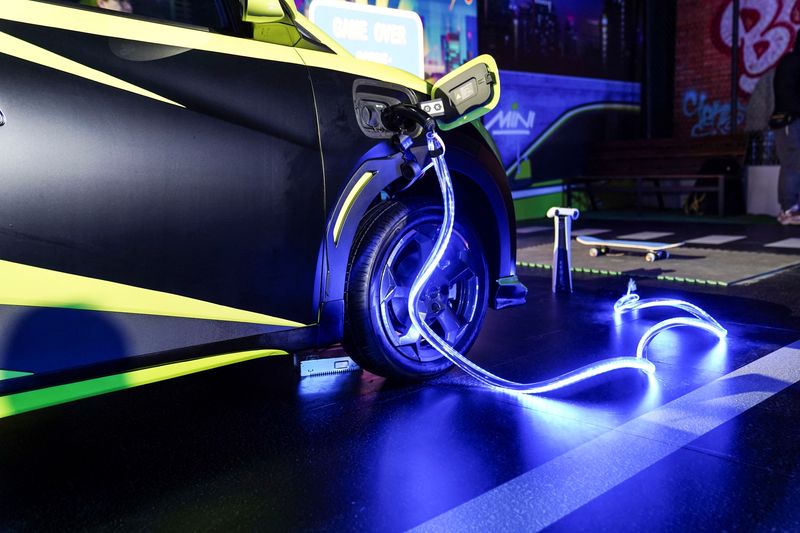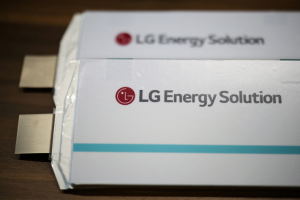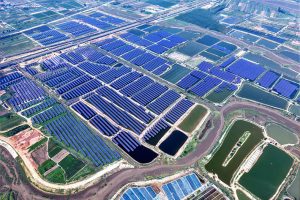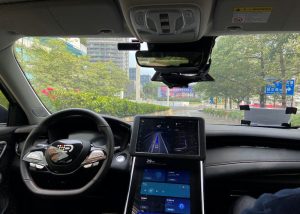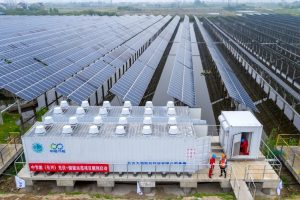The global shift to electric vehicles will have a “far-reaching” impact on global patterns of investment, production, trade, and employment, the International Monetary Fund said on Tuesday as part of its update to global economic growth forecasts.
The analysis was part of the UN financial agency’s latest World Economic Outlook, released ahead of annual meetings of the IMF and World Bank this week.
“The rising adoption of electric vehicles represents a fundamental transformation of the global automotive industry. It will have far-reaching consequences,” the IMF said.
Also on AF: All-Time-High EV Sales in China Defy Slowdown Worry
“The EV transition will have implications beyond car manufacturing: for the energy sector, for instance, with a shift from gasoline to electricity to fuel car fleets, or for demand for minerals,” it said.
According to the IMF analysis, the EV transition will be key to reducing transportation emissions, which have declined at a slower pace compared to those from energy and manufacturing over the past 25 years.
In 2022, transportation accounted for 36% of greenhouse gas emissions in the US, 21% in the European Union, and 8% in China, the agency said.
The IMF also noted the policy measures taken by the United States and European Union to enable the EV transition, which include goals to cut vehicular emissions and subsidies to enable EV purchases.
Governments are also taking steps to close the cost and convenience gaps between EVs and internal combustion engine (ICE) vehicles, the IMF said.
“Policies are targeting the entire EV value chain: vehicles, batteries, and extraction and processing of metals,” it said.
The push to cut costs has fuelled a “race for innovation”, the IMF noted.
Indeed, global carmakers are racing to produce both cheaper and highly technologically advanced EVs.
China’s BYD, for instance, is currently selling EVs priced as low as $10,000 and as high as $200,000. The carmaker has also developed hybrid models that it claims have a driving range of more than 2,000 kilometres.
Meanwhile, battery-makers are chasing solid-state batteries that could potentially significantly reduce EV prices. They are also racing to develop batteries that can charge within minutes.
China big winner
Amid all those developments, China has emerged as the biggest winner of the EV transition. “The role of China in both production and exports [of EVs] has dramatically increased compared with that 15 years ago”, the IMF noted.
On the other hand, for the European Union, increasing EV penetration will likely result in its GDP falling by about 0.3% in the medium term, the agency said.
A key reason for the GDP drop would be employment declines in the automotive sector, according to the analysis.
That prediction is likely rooted in European carmakers’ slow shift toward EVs as they continue to struggle with high manufacturing costs. That has led to a slowdown in demand for fully electric vehicles in the EU, with buyers snubbing higher priced cars.
Their Chinese counterparts, meanwhile, maintain an edge in production thanks to cheaper supply chains built over years with ample state backing — worth a total of $230.9 billion by some assessments.
The resulting influx of cheap Chinese cars has proven to be a double whammy for European carmakers.
Making climate ‘trade-offs’
To manage the disparity, the EU has imposed tariffs as high as 45% on imports of Chinese duties.
The move has received a mixed response from European carmakers, with some warning that the levies are a “trap” considering automakers in the region need to find ways to cut costs instead of being protected from competition.
View this post on Instagram
Meanwhile, the slowdown in EV demand has also led Europe’s car industry to demand a relaxation of the EU’s goal of reducing emissions from cars by 50% by 2030.
But “with fewer imported EVs, climate policies have to be more stringent to reach the same climate goal,” the IMF noted.
The resulting higher prices of EVs will also reduce consumer purchasing power, it added.
But the ability to import EVs from China could help the EU “soften the trade-offs between economic and climate goals,” the IMF said.
Imports of EVs will “redistribute gains and losses between countries specialising in car manufacturing (losing market share) and net car importing countries (gaining purchasing power),” it noted.
- Vishakha Saxena
Also read:
EV Purchases Hold Firm Amid Global Vehicle Sales Slump – AT
China Says EU Using ‘Insincere Tactics’ to Hinder Tariff Talks
Tariffs on Chinese EVs Will Speed up EU Plant Closures: Tavares
Trade Tensions With China ‘Hindering Carmakers’ Investments’
Toyota Displays Hydrogen Fuel Cartridges for EVs, Homes
Chinese Carmakers Call For 25% Retaliatory Tariffs on EU Cars
China EV Firms Scaling Back European Plans Over Subsidy Probe
As EU Eyes Tariffs, European States Chase China EV Factories
BYD, Li Auto, XPeng Sell Record Numbers of EVs in September




